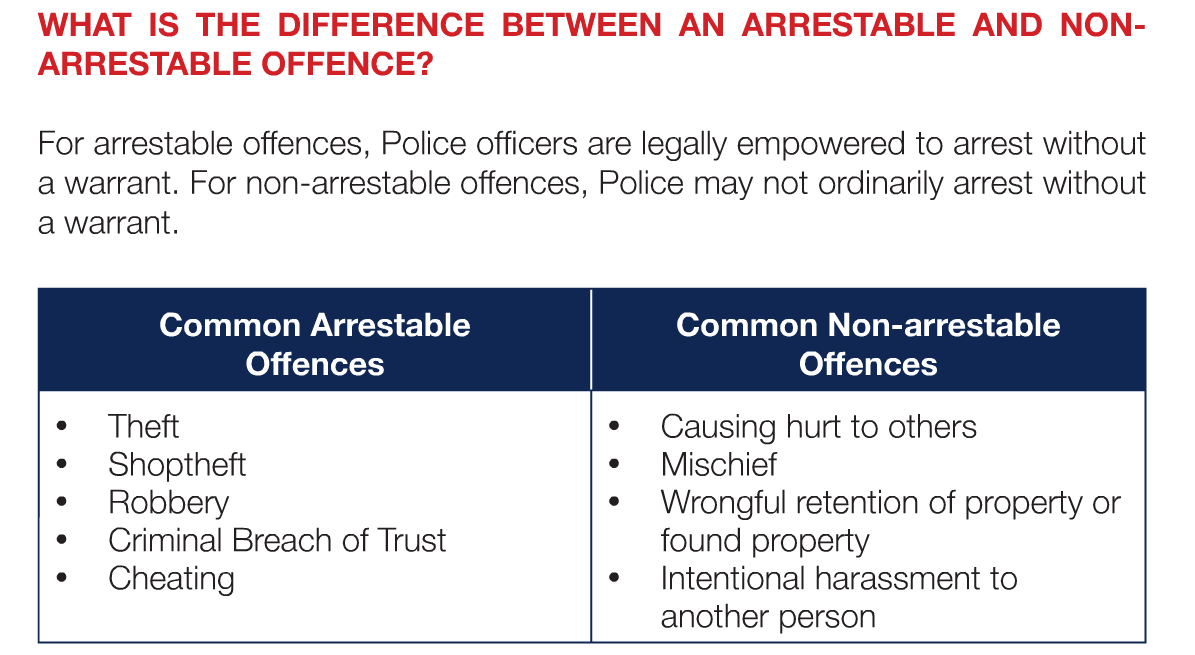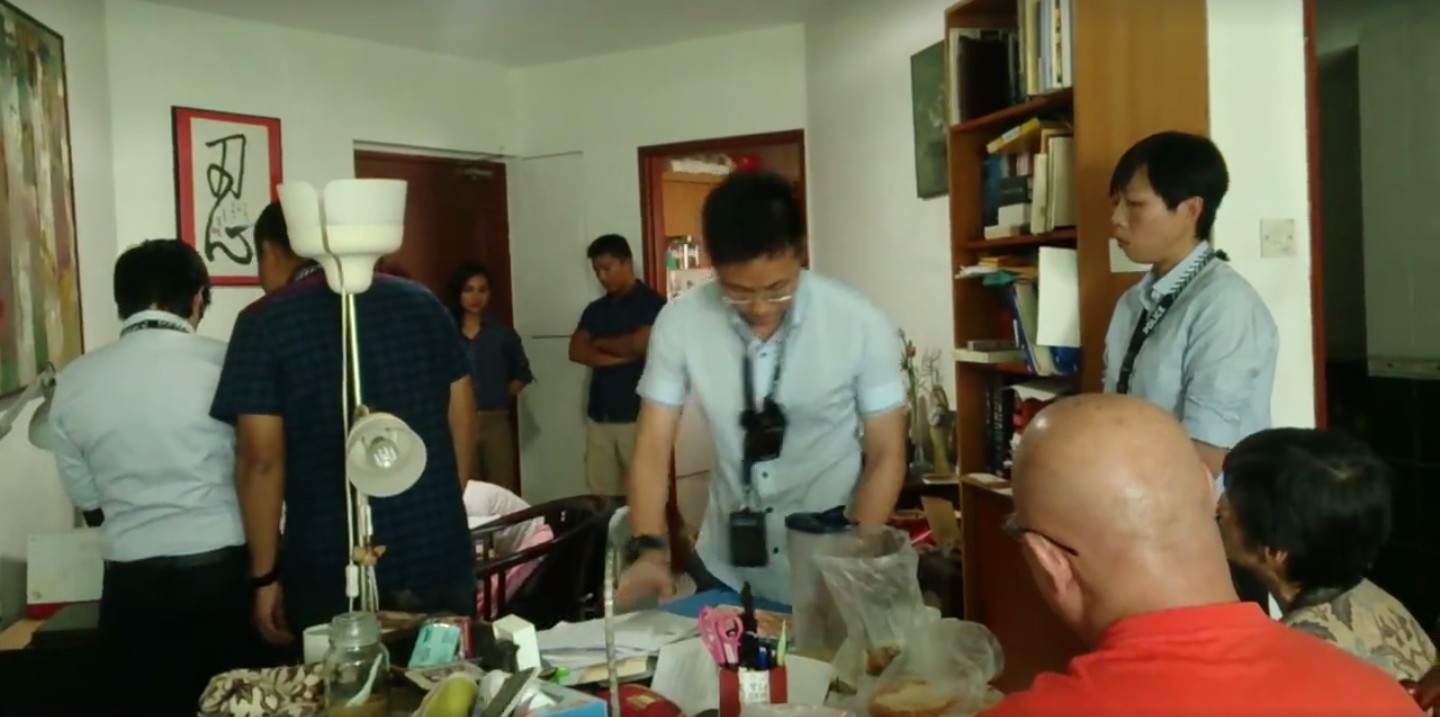Late on Tuesday evening, night owls on Facebook gained insight into the process of police investigations into the allegations of people breaking the cooling-off day rules in the Bukit Batok by-election, courtesy of two lawyers.
Here's an account of what happened from lawyer Choo Zheng Xi, one of two lawyers representing former SDP member and candidate Teo Soh Lung — one of the people accused of this:
This isn't the first time Singapore's police have investigated alleged breaches of cooling-off day rules in an election, but this is the first time people are sharing details about it.
Another lawyer, Jeannette Chong-Aruldoss, followed Teo to Cantonment Complex for a roughly two-and-a-half hour interview earlier Tuesday morning.
She told Mothership.sg that Teo was disallowed from taking a break at the two-hour mark despite both her and Teo requesting one, saying she was tired.
"I was getting a bit worried when it wore on for more than two hours because a person's concentration doesn't last for more than one and a half hours... I requested for her to take a break; I didn't want her to be answering questions when she's tired, because she may say something she doesn't mean. Plus, she's no spring chicken (Teo is 67 years old); I don't know what medical conditions she might have."
She stressed that from the outset, Teo did not deny that she posted the four Facebook posts, and so both of them were taken aback that the police moved on to Teo's house to seize her desktop, laptop and handphone.
She recorded part of it in this video she posted on Facebook:
Chong-Aruldoss speculated the possibilities that would warrant the seizure of one's laptop and desktop include, for instance:a) if the person accused of the offence says it was a glitch, or
b) if the person accused of the offence says it wasn't them who posted the offending material.
"But in this case, (Teo) is saying 'I'm the one who did the post.'... Another possible justification to seize the laptop would be, you may say you are the one, but maybe you're not, so they want to know if you're protecting somebody else who is posting it. On the other hand, the investigation is about you... so I'm quite confused as to why.
Or perhaps on the day of the trial — if it gets that far — you claim it wasn't you, and so the police still need your laptop if your concession isn't enough. So how far do we go? And what's the point of going to the police station if they're not going to accept her word for it? I really just don't understand."
In Chong-Aruldoss's clip, one can count seven people in the room, apart from Teo and a friend seated beside her. She said two individuals oversaw the search and seizure process.
"I wasn't able to do very much about what was happening — it was clear that they were clear that they had the right to do what they wanted to do and if I had any objections, I'd have to write in. So I just sat down to observe what was going on.
And indeed, as it turns out, the police do.
First of all, violating the cooling-off day rules in an election is an arrestable offence in the Parliamentary Elections Act:
 Screenshot from ELD website - Parliamentary Elections Act
Screenshot from ELD website - Parliamentary Elections Act
And when that's the case, police are empowered to conduct searches and seize any item they feel is necessary to investigate, without the need for a search warrant:
 Screenshot from Singapore Statutes: Criminal Procedure Code
Screenshot from Singapore Statutes: Criminal Procedure Code
(By the way, we just wanted to say that the police themselves highlight the following as typical arrestable offences in a for-the-public information booklet: )
 Screenshot from Police website
Screenshot from Police website
With the understanding of the above, Chong-Aruldoss shared Teo's different interpretation on the rules:
"Her (Teo's) position is she didn't think the Cooling-Off day laws applied to her... she considered herself as a private individual free to express her views to whoever wanted to listen."
Roy Ngerng also had his devices seized in investigations
Chong-Aruldoss added that while waiting for Teo, she saw blogger Roy Ngerng being ushered out of an interview room — Ngerng is also being investigated for cooling-off day rule breaches — but was only able to ask the police officers escorting him what was happening to him, and wasn't able to speak to him properly.
Here's Ngerng's account of what happened to him:
The TL;DR:
Ngerng was interrogated from 10am to about 6pm — with a break in between to retrieve items from his home — over posts on his Facebook page and blog, some of which he says were not related to the election. He says he wasn't allowed to speak to Chong-Aruldoss, whom he met while being escorted out of the police station.
He said the police asked for his passwords to his phone, laptop, Facebook and Wordpress accounts in order to check IP addresses and to ensure he was the only person using his accounts.
They also downloaded his Facebook "archives".
According to a separate account by Kirsten Han, the police took two laptops, his mobile phone, two hard drives and some memory cards from him.
So in light of these two events that unfolded on Tuesday, we've got a few questions for the police and the ELD:
1) Is this the first time the police has seized items for investigations into cooling off day violations?
After all, Singapore has experienced six cooling off days so far — GE2011, PE2011, the two by-elections in 2012 and 2013, GE2015 and the latest by-election in May this year.
2) Does the intent of the person involved matter?
In a number of previous cases where politicians were involved, it was highlighted that the violation was unintentional and due to Facebook glitches, for instance.
Were laptops, desktop computers and phones also confiscated in those cases in order to verify those claims?
3) With the prevalence and influence of social media, how does one assess whether a person's Facebook page or Twitter account is deemed as a news media platform or as an individual?
We observed that the mainstream media like Channel NewsAsia, Today, The Straits Times, The New Paper and other language papers are permitted to post freely about the election on cooling-off and polling day.
It is also noted that individuals are permitted to express their opinions. So why are Teo and Ngerng being taken to task? Are they not individuals, or is Teo's Facebook page and/or Ngerng's blog deemed to be a media platform?
4) What is the government's approach to non-MSM websites that publish content on the election?
It is observed that MSM sites like Channel NewsAsia appreciate the spirit of cooling off day and chose not to circulate their election-related web articles via their social media platforms. However, they are able to publish articles online, in print and broadcast, on Cooling-Off Day.
Online sites do not have this advantage, with The Online Citizen, Mothership.sg (yes, us too) and The Middle Ground adopting a "play it safe" approach by completely holding off publishing any election-related articles. The Independent Singapore, on the other hand, chose to test these boundaries, and is now under police investigation.
What is the government's approach to these sites? Are they treating all non-MSM sites as partisan and therefore not allowed to publish content at all?
When Minister for Communications and Information Yaacob Ibrahim clarified the intent of the online licensing framework (the one governing 11 news sites now) in parliament, he said:
"It is because of the responsibility news providers have to our society that we have adopted an individual licensing framework for traditional news platforms. And this is also the reason for extending a similar framework to online news sites for greater consistency."
If consistency is applied for online sites for this issue, shouldn't the government consider a more consistent approach between MSM sites and online sites for cooling-off day regulations too?
Related article:
Workers’ Party ‘concerned’ with how Cooling Off Day investigations are being conducted
Top image: Screenshot from Jeannette Chong-Aruldoss's Facebook page
If you like what you read, follow us on Facebook and Twitter to get the latest updates.
If you like what you read, follow us on Facebook, Instagram, Twitter and Telegram to get the latest updates.
